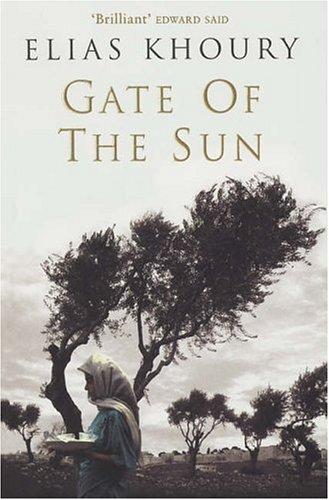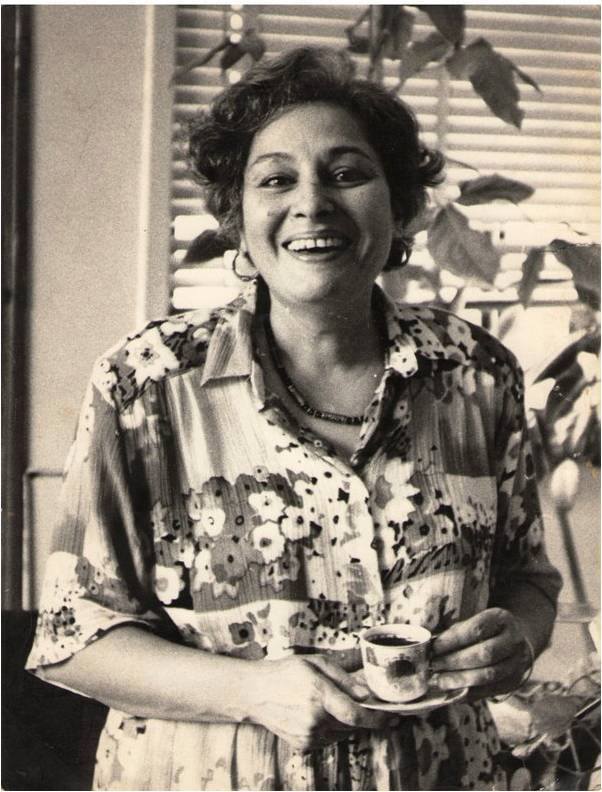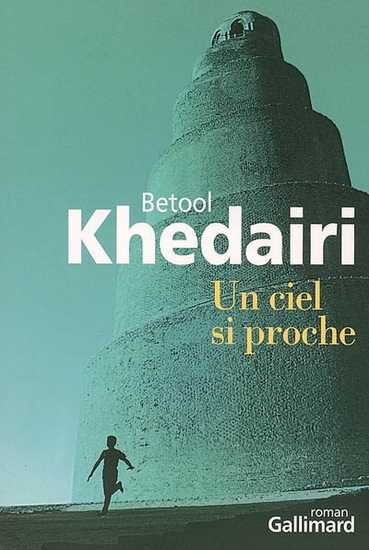The following is an excerpt from Elias Khoury’s novel Gate of the Sun (translated by Humphrey Davies). Drawing on the stories Khoury gathered from refugee camps over the course of many years, Gate of the Sun has been called the first magnum opus of the Palestinian saga.
Umm Hassan is dead. I saw everyone racing through the alleys of the camp and heard the sound of weeping. Everyone was spilling out of their houses, bent over to catch their tears, running. Nabilah, Mahmoud al-Qasemi’s wife, our mother, was dead. We called her mother because everyone born in the Shatila camp fell from their mother’s guts into her hands. I too had fallen into her hands, and I too ran the day she died.
Umm Hassan came from al-Kweikat, her village in Galilee, to become the only midwife in Shatila – a woman of uncertain age and without children. I only knew her when she was old, with stooped shoulders, a face full of creases, large eyes shining in a white square, and a white cloth covering her white hair. Our neighbor, Sana’, the wife of Karim al-Jashi the kunafa seller, said Umm Hassan dropped in on her the night before last and told her her death was coming.
“I heard its voice, daughter. Death whispers, and its voice is soft.”
✍
Speaking in her half-Bedouin accent she told Sana’ about the messenger of death. “The messenger came in the morning and told me to get ready.” And she told Sana’ how she wanted to be prepared for burial. “She took me by the hand,” said Sana’, “led me to her house, opened her wooden trunk, and showed me the white silk shroud. She told me she would bathe before she went to sleep: ‘I’ll die pure, and I want only you to wash me.’ “
Umm Hassan is dead. Everyone knew that this Monday morning, November 20th, 1995, was the time set for Nabilah, Fatimah’s daughter, to meet death. Everyone awoke and waited, but no one was brave enough to go to her house to discover she was dead. Umm Hassan had told everyone, and everyone believed her. Only I was taken by surprise. I stayed with you until eleven at night, and then, exhausted, I went to my room and slept. It was night, the camp was asleep, and no one told me. But everyone else knew.
No one would question Umm Hassan because she always told the truth. Hadn’t she been the only one to weep on the morning of June 5, 1967? Everyone was dancing in the streets, anticipating going home to Palestine, but she wept. She told everyone she’d decided to wear mourning. Everyone laughed and said Umm Hassan had gone mad. Throughout the six long days of the war she never opened the windows of her house; on the seventh, out she came to wipe away everyone’s tears. She said she knew Palestine would not come back until all of us had died.
✍
Over the course of her long life, Umm Hassan had buried her four children one after the other. They would come to her borne on planks, their clothes covered in blood. All she had left was a son called Naji, who lived in America. Though Naji wasn’t her real son, he was: She had picked him up from beneath an olive tree on the Kabri-Tarshiha road and had fed him from her dry breasts, then returned him to his mother when they reached the village of Qana, in Lebanon.
Umm Hassan died today. No one dared go into her house. About twenty women gathered to wait, then Sana’ came and knocked on the door, but no one opened it. She pushed it, it opened, she went in and ran to the bedroom. Umm Hassan was sleeping, her head covered with her white headscarf. Sana’ went over and took her by the shoulders, and the chill of death flowed into the hands of the kunafa-seller’s wife, who screamed. The women entered, the weeping began, and everyone raced to the house.
I, too, would like to run with the others, go in with them, see Umm Hassan sleeping her eternal sleep and breathe in the smell of olives that clung to her small home. But I didn’t weep. For three months I’ve been incapable of reacting. Only this man floating above his bed makes me feel the throb of life.
For three months he’s been laid out on his bed in Galilee Hospital, where I work as a doctor, or where I pretend that I’m a doctor. I sit next to him, and I try. Is he dead or alive? I don’t know – am I helping or tormenting him? Should I tell him stories or listen to him?
For three months I’ve been in this room. Today Umm Hassan died, and I want him to know, but he doesn’t hear. I want him to come with me to her funeral, but he won’t get up. They said he fell into a coma. An explosion in the brain causing permanent damage. A man lies in front of me, and I have no idea what to do.
I’ll just try not to let him rot while he’s still alive, because I’m sure he’s asleep, not dead. But what difference does it make? Is it true what Umm Hassan said about a sleeper being like a dead man – that the sleeper’s soul leaves his body only to return when he wakes, but that the dead man’s soul leaves and doesn’t come back?
✍
Where is the soul of Yunes, son of Ibrahim, son of Suleiman al-Asadi? Has it left him for a distant place, or is it hovering above us in the hospital room, asking me not to go because the man is immersed in distant darknesses, afraid of the silence? I swear I’ve no idea. On her first visit Umm Hassan said that Yunes was in torment. She said he was in a different place from us.
“So what should I do?” I asked her.
“Do what he tells you,” she answered.
“But he doesn’t speak,” I said.
“Oh yes, he does,” she said, “and it’s up to you to hear his voice.”
And I don’t hear it, I swear I don’t, but I’m stuck to this chair, and I talk and talk. Tell me, I beg of you, what should I do? I sit by your side and listen to the sound of weeping coming through the window of your room. Can’t you hear it? Everyone else is weeping, so why don’t you? It’s become our habit to look out for occasions to weep, for tears are dammed up behind our eyes. Umm Hassan has burst open our reservoir of tears. Why won’t you get up and weep?


